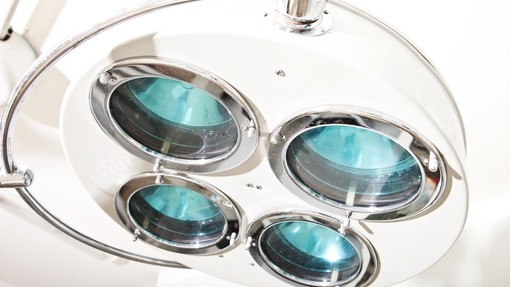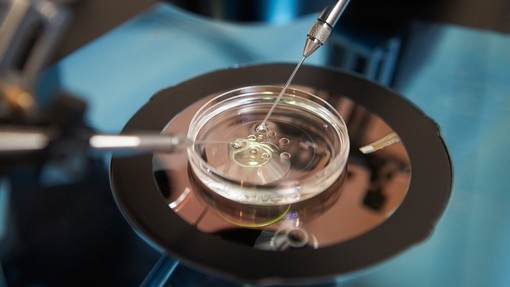Life Sciences and the Law
November 2023

Life Sciences and the Law
Welcome to the Autumn edition of our newsletter
We hope that you find it informative and insightful. It has been another busy quarter in terms of developments in the sector. Our experts discuss a number of these in our news and views section including, details on the MHRA’s Corporate Plan for 2023 to 2026, some important developments in artificial intelligence, fertility laws and data protection, and an update on proposals for UK public procurement which will be relevant to companies bidding for NHS contracts.
Our industry news in brief provides some short updates on a variety of recent developments in the sector and our Q&A section features Jacques Du Preez, Director and Co-Founder of Psephos Biomedica, who discusses the key trends, challenges and opportunities facing the Life Sciences Industry.
If you have any questions, please get in touch. Otherwise, as always, kick back for a few minutes, enjoy the read and do let us have any comments.
-
News and views – what you need to know
![]()
MHRA Corporate Plan: What are the MHRA’s strategic objectives for medicines and medical devices 2023 to 2026?
The Medicines and Healthcare products Regulatory Agency (the ‘MHRA’) has published its Corporate Plan for 2023 to 2026 in the regulation of medicines and medical devices. Read more
![]()
UK formally recognises the US as having adequate data protection, simplifying transatlantic transfers of personal data
On 21 September 2023, the government laid The Data Protection (Adequacy) (United States Of America) Regulations 2023. The regulations will come into force on 12 October 2023 and establish a UK-US ‘data bridge’ by formally recognising transfers of personal data to certain US organisations as having an adequate level of data protection. Read more
![Data protection]()
Data protection: New ICO guidance on processing information about a worker’s health
Extra data protection safeguards apply when an employer processes information about a worker’s physical or mental health because of the sensitive nature of this information. The Information Commissioner’s Office (ICO) has recently published new guidance for employers on processing information about a worker’s health. Read more
![]()
Harnessing value-based healthcare to address challenges in global healthcare
The healthcare landscape is facing several profound issues including increasing demand and cost, workforce pressures and effective utilisation of new technology and data. Read more
![]()
New PPN 08/23 - Updates to Standard Contracts
The new Procurement Policy Note (PPN 08/23) was published on 1 August 2023 by Cabinet Office, replacing PPN 04/14 (Model Services Contract) and PPN 06/14 (Short Form Terms and Conditions) relating to the use of standard contracts by the public sector. Read more
![]()
Procurement Update: October 2023
One year to go for the Procurement Bill. The Procurement Bill has been continuing its progress through Parliament, moving between the House of Commons and the House of Lords in the amendment process. With no change to the dates previously announced, the ‘go live’ date for its implementation is still expected to be October 2024. Read more
![]()
Five things you need to know about the Provider Selection Regime
Last week we provided an update to confirm that after nearly two years of anticipation and two consultation exercises, the draft Health Care Services (Provider Selection Regime) Regulations 2023 (the PSR) have been published. Read more
-
Q&A with Jacques du Preez
![Jacques Du Preez]()
Introducing Jacques Du Preez, Director and Co-Founder of Psephos Biomedica
A Regulatory and Quality consultancy that specialises in bringing medical technologies to market. In this Q&A Jacques discusses his role within the company, industry trends and challenges, a recent project that he worked on for the UK Health Security Agency and one development he would like to see in the regulatory space. Read more
-
Client news
Propel 5 – launch of Health Innovation Yorkshire and Humber accelerator
Propel@YH is a well-established digital accelerator programme for healthtech innovation in Yorkshire and Humber. As a founder sponsor, we were delighted to attend the launch event last month. Innovators will receive a six-month course of structured support from the scheme’s partners.
AMR Innovation Programme launch
On Monday 30th October, Health Innovation Consortium, Barts Life Sciences, BLK Partners and Hill Dickinson launched a programme to tackle Antimicrobial Resistance (AMR), a major global challenge. The programme will provide support to companies with innovative solutions to AMR, with the launch taking place at the Global Health conference in Riyadh. Professor Steve Field, GP and UK Special Healthcare Representative to Saudi Arabia, provided an overview of the UK Government’s efforts to tackle AMR with HIC’s Chief Partnerships Officer Suzie Ali-Hassan sharing the support offered through the programme. Applications for the programme are open from the 30th of October – 1st December 2023, to apply click here.
Barts Life Sciences HealthTech Programme
Barts Life Sciences, in partnership with Queen Mary University of London, has launched a HealthTech Programme to support HealthTech SMEs registered or active in London, with the programme aiming to provide support and foster innovation for up to 200 SMEs. Participating SMEs will receive bespoke guidance via NHS Navigation Training, Masterclasses, and tailored 1-2-1 Advice Clinics. Hill Dickinson are pleased to be supporting and participating in this programme, working with Psephos Biomedica in providing training on regulatory issues.
Hill Dickinson’s Private Equity team advises NorthEdge on multi-million-pound investment into Antibody Analytics
Commercial law firm Hill Dickinson has advised private equity firm NorthEdge on its multi-million-pound investment into Antibody Analytics, a leading provider of immunology research services. Antibody Analytics is a contract research organisation (CRO) that provides services in the field of pre-clinical drug discovery to an international client base of biopharmaceutical companies. Read more
Hill Dickinson advises PAM Group on Irish wellbeing company acquisition
Law firm Hill Dickinson has advised the Warrington-based occupational health and wellbeing specialist PAM Group on the strategic acquisition of an Irish wellbeing business for an undisclosed sum. In the LDC-backed firm’s third acquisition of 2023, PAM Group has bought Corporate Health Ireland (CHI), a 100-strong wellbeing business that will allow it to expand its geographical footprint and support its target of reaching £80 million in turnover in the next few years; up from £45 million in 2022. Read more
Hill Dickinson advises Pitalia Capital on £12m online pharmacy investment
Commercial law firm Hill Dickinson has advised Pitalia Capital on a £12 million cash injection into online pharmacy Chemist4U. Chemist4U and bespoke weight management clinic myBMI form part of JCCO Healthcare with the backing set to “turbocharge” the businesses’ growth, according to chief executive James O’Loan. Chemist4U handles 190,000 orders a month and is expected to hit £29 million turnover in the 12 months to the end of September, with MyBMI on track to hit £10 million turnover in 2023/24. Read more
Hill Dickinson advises NHS primary healthcare provider on £8.25m investment
Law firm Hill Dickinson has advised physio and podiatry services provider Primary Care Physio Limited (PCP) on a multi-million investment designed to drive growth and, in doing so, help alleviate pressure on the NHS’s primary healthcare market. PCP was founded in 2020 by serial entrepreneurs Ryan Allen, Mohammed Nazir and Prof Gary Shuckford. It provides a fully managed first-contact musculoskeletal service to primary care networks (PCNs) in the UK and currently employs over 300 physiotherapists and podiatrists, freeing up GP capacity in the primary care sector. Read more
-
Upcoming events
- 8 November – we are co-presenting a webinar with our partners Healthcare Innovation Consortium –on electronic patient record implementation: Simplifying ERP Implementation
- 22 November – following the success of SEHTA 2023 MedTech-Expo we are co-presenting with Docobo on the current hot topic of virtual wards – Virtual Wards
-
Industry news in brief
£100 million to be invested in artificial intelligence for life sciences
The Government has announced plans to invest a further £100 million to accelerate the use of artificial intelligence (‘AI’) in making breakthroughs in treatments for previously incurable diseases such as cancer and dementia. The Science Secretary Michelle Donelan said: “Safe, responsible AI will change the game for what it’s possible to do in healthcare, closing the gap between the discovery and application of innovative new therapies, diagnostic tools, and ways of working that will give clinicians more time with their patients.”
The announcement by the Prime Minister came ahead of the AI safety summit, held on Thursday 2 November 2023. More details can be read here.
Linked to this, the MHRA has launched a new “AI-Airlock”, a new regulatory sandbox to assist in the development and deployment of software and AI medical devices, safely providing patients with earlier access to cutting edge innovations that improve care: MHRA to launch the AI-Airlock, a new regulatory sandbox for AI developers - GOV.UK (www.gov.uk)
New IVF laws to benefit same-sex couples
The government has announced plans to introduce two significant changes to legislation which will assist same-sex couples undertaking IVF treatment.
Same-sex couples with non-transmissible HIV (ie where the level of HIV virus is low enough to not be detected by a test) will be able to undertake IVF treatment, including known sperm or egg cell donation to friends or relatives.
Female-same sex couples undertaking reciprocal IVF will also no longer be under the requirement to undergo screening for infectious diseases. The screening can cost up to £1,000 and is not required for heterosexual couples.
It is currently unknown when the law will change but the government has stated that statutory amendments will be made as soon as possible. The press release can be read here.
New Guidance on the Innovative Devices Access Pathway pilot scheme
The Innovative Devices Access Pathway (IDAP) pilot is an initiative to bring new technologies and solutions to the NHS to help with medical needs that are not currently being met. The IDAP aims to improve patient access to innovative medical devices by providing an integrated and enhanced pathway for developers. The pilot will test the main elements of the pathway, with the aim of gathering feedback to further develop and improve the IDAP.
The IDAP is open to UK and international commercial and non-commercial developers with new health technology solutions. Successful applicants will receive non-financial support from a team of experts to develop a product specific Target Development Profile roadmap, which will outline product development. Companies of all sizes can apply, and the lead company can work with other companies or organisations. Further guidance on the IDAP pilot phase and applications can be found here.
The new Windsor Framework Regulations
The UK and EU agreed the Windsor Framework, providing a fundamentally new set of arrangements to restore the smooth flow of trade within the UK internal market; safeguard Northern Ireland’s place in the Union; and address the democratic deficit that was otherwise at the heart of the original Northern Ireland Protocol. These arrangements were adopted at the Withdrawal Agreement Joint Committee on 24 March 2023.
The new Windsor Framework Regulations, titled the “Retail Movement Scheme”, sets out dedicated arrangements to support the critical flow of agrifood retail products into Northern Ireland, by removing unnecessary checks and complex certification requirements, and enabling goods made to UK public health standards to be moved. The regulations can be read in full here.
Scientists have grown a model of a human embryo, without using sperm, eggs or a womb
The Weizmann Institute team has created an “embryo model”, which is made using stem cells and is described by the team as the first complete embryo model for mimicking all the key structures that emerge in the early embryo. The team says that the embryo model is a textbook example of a human 14-day-old embryo. Instead of a sperm and egg, the starting material was naïve stem cells which were reprogrammed to gain the potential to become any type of tissue in the body. These embryo models can help scientists explain how different types of cells emerge, witness the earliest steps in building the body’s organs or understand inherited or genetic diseases. You can read the full article here.
MHRA announces three new approved bodies to certify medical devices
The Medicines and Healthcare products Regulatory Agency (MHRA) has designated three new UK Approved Bodies, TUV SUD, Intertek, and TUV Rheinland UK, to join the four current UK Approved Bodies, almost doubling current capacity for the certification of medical devices in the UK. By almost doubling capacity for medical device assessment in the UK, more patients will be supported to access safe and effective products they need to protect their health. The Government’s press release detailing the new appointments can be found here.
Government to invest £30 million in innovative technology for the NHS
Patients across the country will benefit from a £30 million government investment in innovative medical technology which will help ease pressures on the NHS this winter. Integrated Care Systems (ICS), organisations that come together in local areas to deliver joined up health and social care services, will be able to invest in the latest technology that can help cut waiting lists, speed up diagnosis and deliver new and improved ways to treat patients. ICSs could expand virtual wards, invest in wearable medical devices to aid patients at home, or invest in the latest imaging technology to bolster diagnostic tests.
ICSs will be able to submit bids to the Department of Health and Social Care and NHS England to access the funds so they can roll out the technology, with applications expected to open this month. The full news story can be found here.
£5.5 million Centre of Excellence announced to grow UK life sciences workforce
The Government has announced £5.5 million to establish a Medicines Manufacturing Skills Centre of Excellence, to boost UK’s ability to response to future health emergencies. The funding will boost the UK’s life sciences sector and ensure that it has the right talent to drive innovation. This funding forms part of the Chancellor’s £650 million “Life Sci for Growth” package that was announced in May.
The center will build on existing infrastructure and best practice, and deliver sustainable, end-to-end training provision, all of which the industry needs to continue growing. A competition to allocate funding, led by Innovate UK, officially opened on 26 September. The Government’s press release announcing the funding can be read here.
Follow us to stay in the loop













